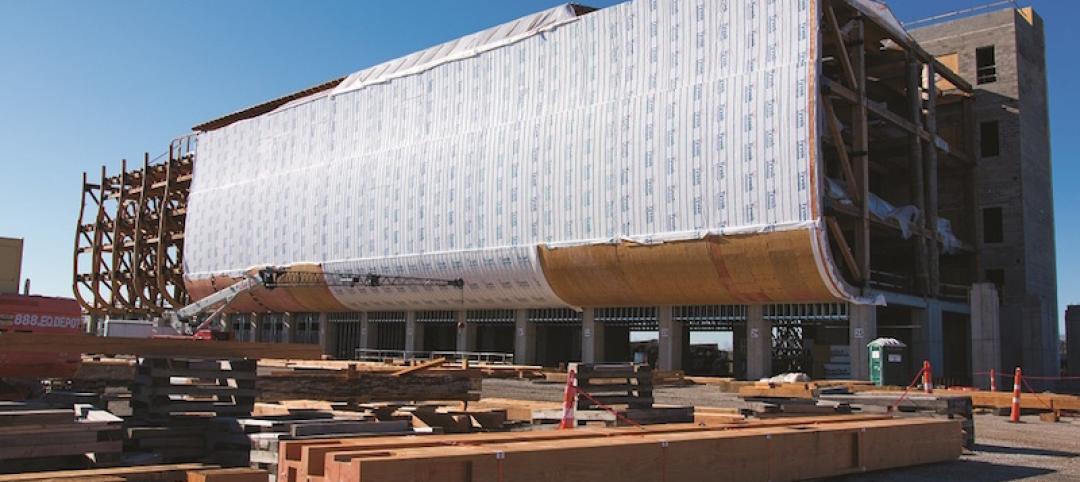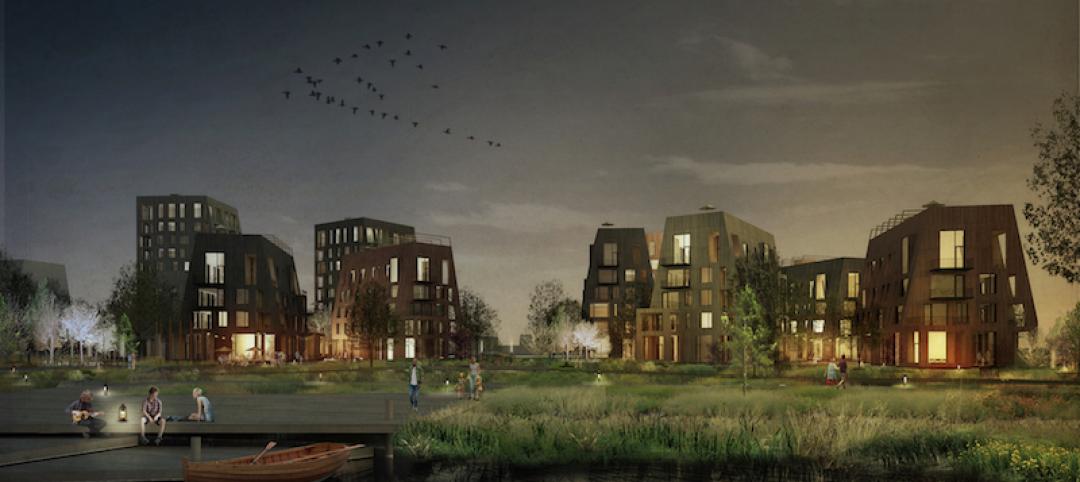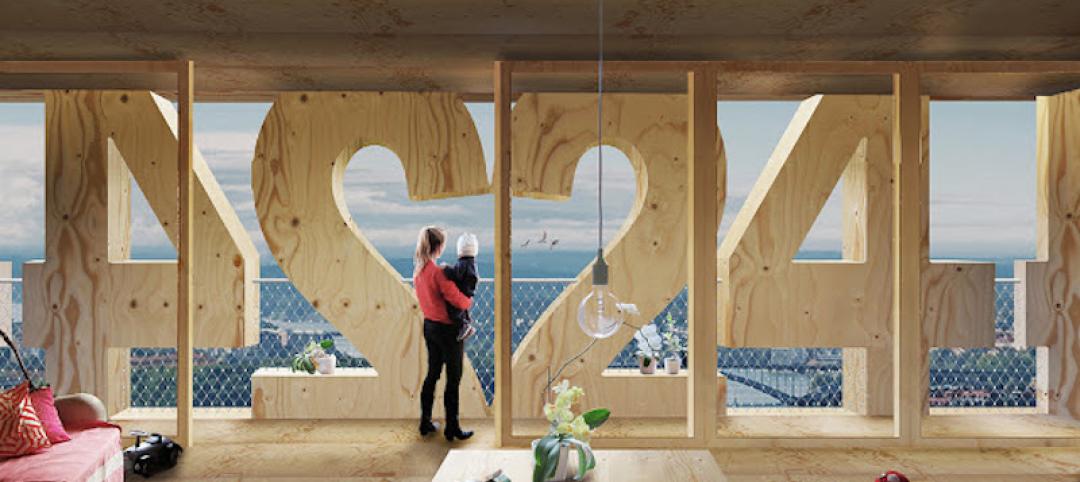The website expertmarketresearch.com estimates that the value of the global cross-laminated timber market hit $779 million in 2020, and is expected to grow annually by 13% to $1.624 billion in 2026.
As demand for mass timber increases, branding is beginning to emerge. One example is TimberQuest, an advanced prefabricated school construction product for the California educational market, which was recently launched by three Bay Area AEC firms: Milpitas-based XL Construction, San Jose-based Aedis Architects, and Saratoga-based Daedalus Structural Engineering.
The trio’s first project using its product is a new 4,000-sf building for kindergarten students with four 1,000-sf classrooms, each with its own restroom, for Sacred Heart Schools in Atherton, Calif., whose 63-acre campus and K-12 curriculum serve more than 800 families. The school greenlighted this project—which is believed to be the first of its kind in the nation—on April 1, and the mass timber components were fabricated and delivered to the construction site by June 1. The building team is targeting an August 31 completion date, in time for the fall semester.
“Two of the things we liked most about the TimberQuest classroom design is the ‘daylighting’ created by the structure’s large windows combined with the exposed wood interior that makes the classroom very pleasant and appealing,” says Michael Dwyer, Sacred Heart Schools’ director of operations. “The building’s overall energy efficiency supports our sustainability philosophy and stands as a shining example of these values we teach to our students.”
Also see: A fly-through video rendering of a TimberQuest classroom
A FLEXIBLE PRODUCTION APPROACH TO MASS TIMBER CONSTRUCTION
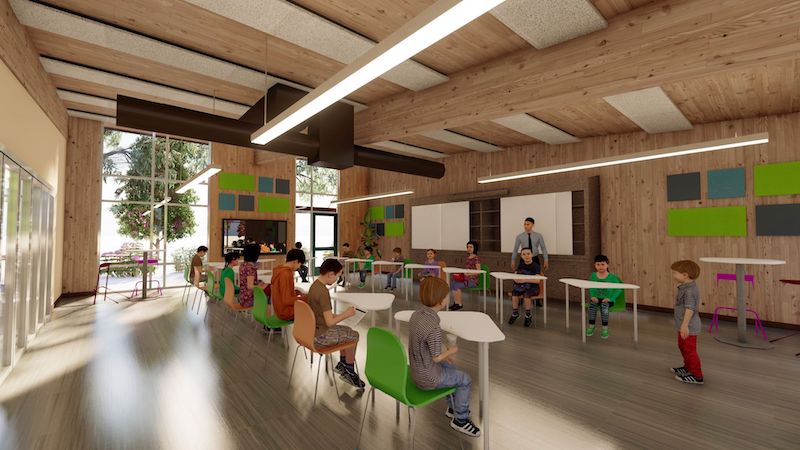
TimberQuest buildings are available in three-to-nine classroom sizes, and are designed to let in lots of natural light.
Matt Larson, XL Construction’s preconstruction director, tells BD+C that his firm and Aedis had worked together previously. “We also knew that we needed a structural expert on both mass timber and California codes. Daedalus [has] local expertise, and has partnered with Fast + Epp, a leading expert on mass timber, to provide both expertise under one roof. XL, Aedis and Daedalus have a core commitment to sustainability and innovation, which are at the heart of TimberQuest.”
Larson went on to explain TimberQuest’s approach to fabrication. For higher-tech items that require expensive machining (such as the mass timber components, the HVAC system, and the glazing system), the building team partners with local suppliers with existing plants. For lower-tech parts of panel fabrication, “there is no requirement for a large plant or expensive tooling,” says Larson. To fabricate walls and roofs, flexible approaches can include “popup” factories in temporary facilities, and using XL’s shop/yard. Fabricating onsite is also an option.
“We feel that this approach will help us avoid a common failure point for this type of venture, namely the overinvestment in facilities and tooling and lack of ability to quickly scale up or down,” says Larson.
FEWER DESIGN DAYS AND ONSITE TRADES
Several factors contribute to TimberQuest’s production speed. These include pre-made design for manufacturing and assembly, and the reduction in the number of trades needed for a project. Larson says that the building team has winnowed the design process—normally 6-12 months—to 6-8 weeks; and has cut the number of trades onsite—typically between 20 and 30—to around 10. “And we hope to reduce it further in the future,” he says.
TimberQuest buildings are available in three- to nine-classroom sizes, between 3,000 and 9,000 sf. A total of nine interior layouts are included in the precheck design, including standard classroom, large classroom, breakout space, office/conference, science, kindergarten and three restroom configurations. The all-electric design utilizes heat pump technology to exceed California’s Title 24 energy usage standards by between 35% and 60%. TimberQuest buildings seek to take full advantage of renewable energy resources.
Related Stories
Wood | Sep 21, 2016
‘The Smile’ showcases the structural potential of CLT
Weight for weight, CLT is stronger than concrete and can be machined to incredibly high tolerances.
Wood | Sep 6, 2016
Atlanta suburb prohibits wood-framed construction for high rises
The new building code prevents any structure with more than three stories from being built from a CLT frame.
Great Solutions | Aug 23, 2016
Reclaimed wood paneling adds color to retail and hospitality projects
Colorburst panels are available in four stock options—Robin Egg Blue, Viridian Green, Haute Pink, and Cascade White—as well as custom colors.
Regulations | Aug 8, 2016
EPA toughens rules to reduce formaldehyde exposure from composite wood products
Products will now have to be labeled as compliant to the new rules.
Concrete | Aug 2, 2016
Concrete Association builds case against cross-laminated timber
The campaign asserts that not enough is known about CLT in construction
High-rise Construction | Jul 14, 2016
Shigeru Ban designs tower expected to be world’s tallest hybrid timber structure
To lessen the carbon footprint, Terrace House in Vancouver will be made of wood sourced from British Columbia.
Wood | Jul 14, 2016
The history of building with wood [infographic]
The first timber home was built 10,000 years ago. Now 40-story wood skyscrapers are being constructed.
Sponsored | Wood | Jun 21, 2016
Flameless water and gas install for Noah’s Ark
When you’re building the largest timber-frame structure in the world, you don’t want an open flame anywhere near the construction site.
Urban Planning | Jun 15, 2016
Swedish ‘Timber Town’ proposal from C.F. Møller provides a unique blend of nature and city
The development acts as a transition area between a traditional urban landscape and parklands.
Wood | Apr 29, 2016
Anders Berensson Architects designs 40-story wooden skyscraper for Stockholm
The structure, which will be made entirely out of cross-laminated timber, will rise 436 feet into the air, making it Stockholm’s tallest building.


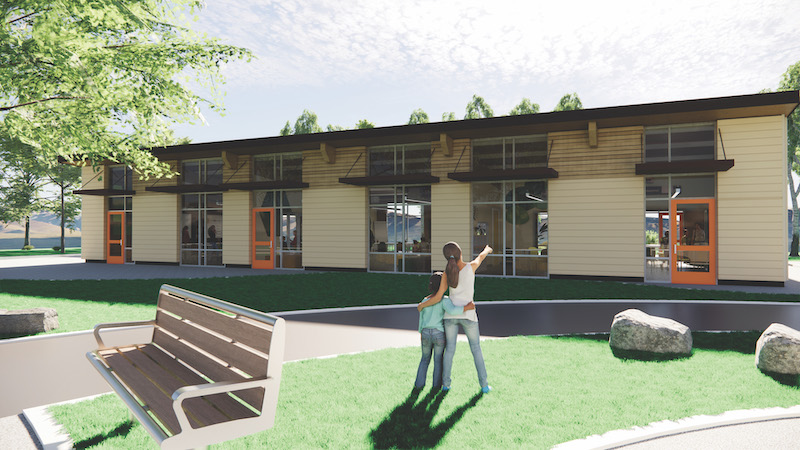
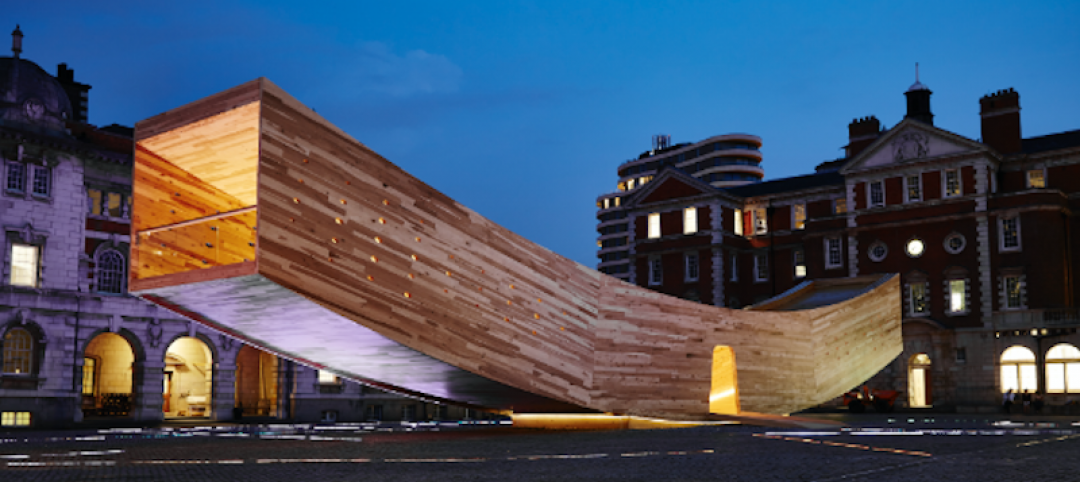


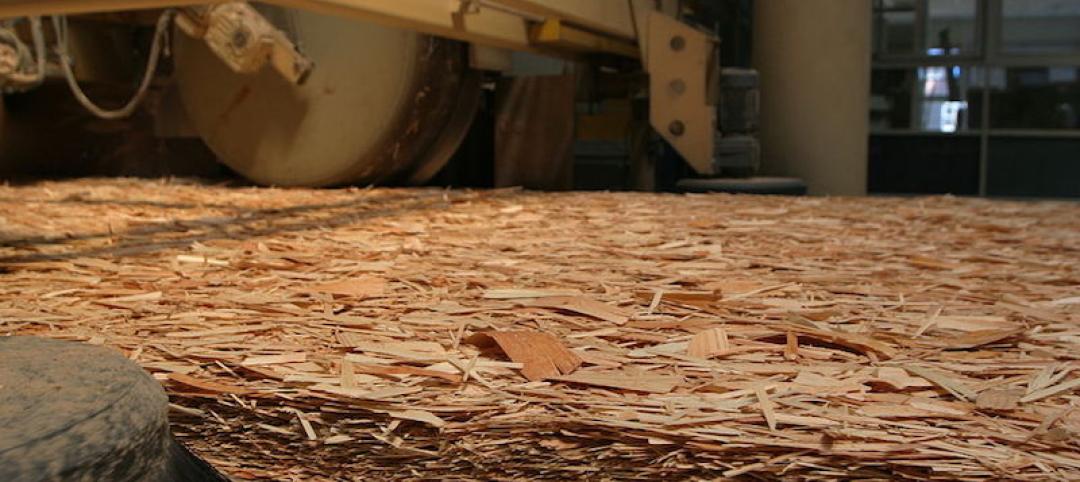
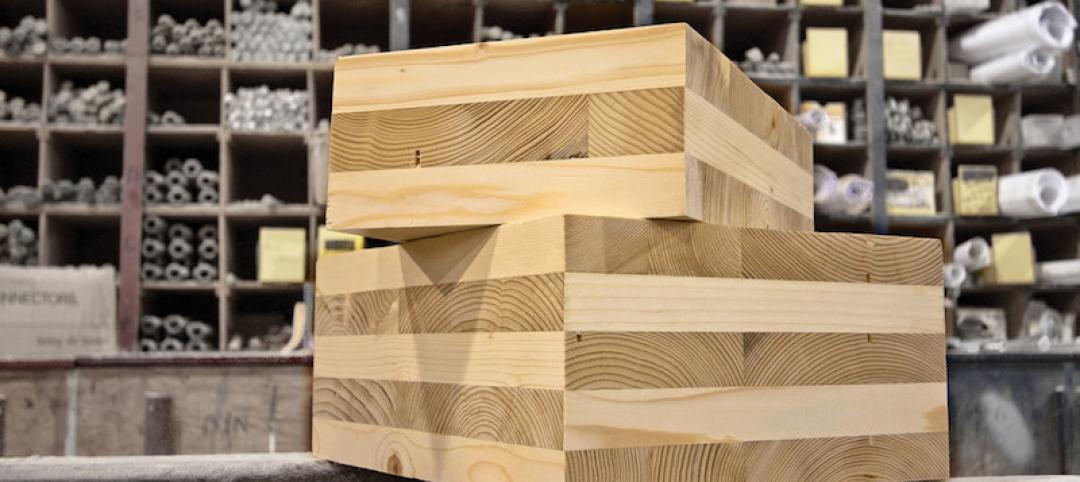
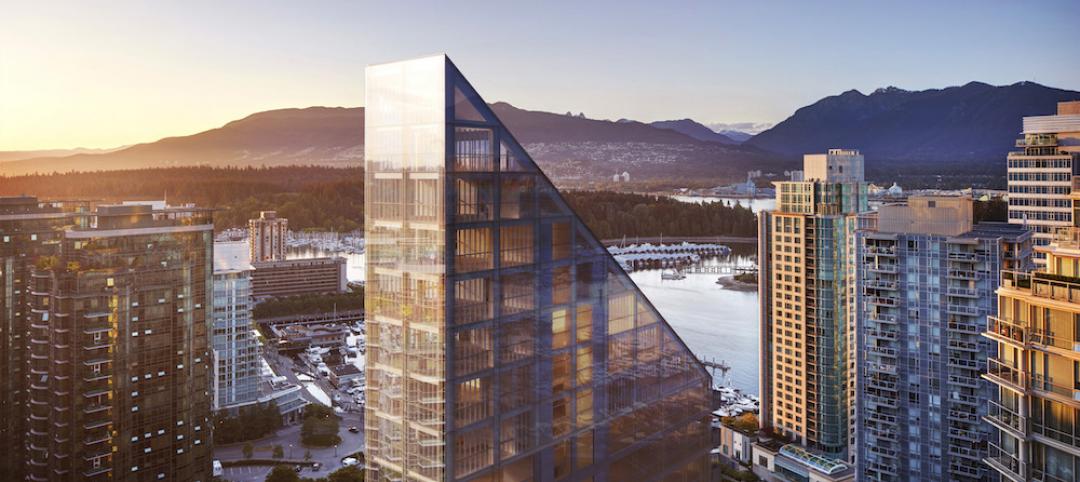
![The history of building with wood [infographic] The history of building with wood [infographic]](/sites/default/files/styles/list_big/public/Richmond_Olympic_Oval_intern_View.jpg?itok=CT3sQmdz)
